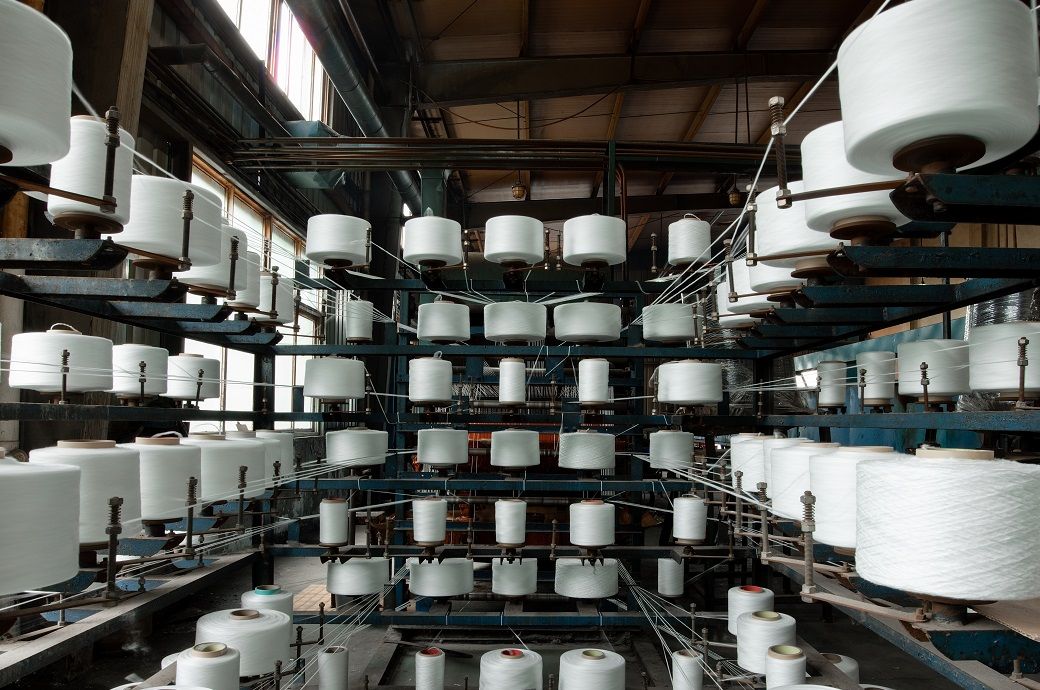
The Ludhiana market witnessed a rise in the price of knitted fabric imported from China as the government increased customs duty to curb excessive imports. However, the price rise did not support domestic cotton yarn prices, which remained largely unchanged. A trader from the Delhi market told Fibre2Fashion, “The market continues to see weak to average demand for cotton yarn from the consumer industry. Following the change in customs duty policy in the Union Budget, the average price of Chinese knitted fabric increased by ₹40 per kg. However, cotton yarn prices did not improve as knitted fabric is mainly produced from man-made fibre yarn. Higher customs duty has made knitted fabric imports from China more expensive.”
In Ludhiana, 30 count cotton combed yarn was sold at ₹260-270 (approximately $2.98-3.09) per kg (inclusive of GST); 20 and 25 count combed yarn were traded at ₹250-260 (approximately $2.87-2.98) per kg and ₹255-265 (approximately $2.94-3.06) per kg, respectively; and carded yarn of 30 count was noted at ₹240-245 (approximately $2.75-2.81) per kg today, according to trade sources.
Following a decrease last week, cotton yarn prices stabilised in the Delhi market. Slow buying activity persisted due to annual account closing and payment regulations. According to market sources, the garment industry is currently focused on higher production, and manufacturing units have already procured the required raw materials. Exporters are also making efforts to ship as many consignments as possible, having already completed their purchases.
In this market, 30 count combed knitting yarn was traded at ₹259-260 (approximately $2.97-2.98) per kg (GST extra), 40 count combed at ₹284-285 (approximately $3.26-3.27) per kg, 30 count carded at ₹233-235 (approximately $2.67-2.69) per kg, and 40 count carded at ₹258-260 (approximately $2.96-2.98) per kg today.
India’s home textile hub, Panipat, is also experiencing lower buying activity from downstream industries. Cotton comber prices eased by ₹2 per kg as slow demand and falling cotton prices provided room for a price reduction. Lower-quality recycled polyester fibre was also sold at lower rates due to poor demand, though recycled yarn did not witness significant price movement. Traders reported that poor demand has dragged down recycled polyester fibre prices, but mills are reluctant to reduce the prices of recycled yarn. The market is unlikely to see better demand until March, though summer demand for home products like finer bed sheets may improve from April onwards.
In Panipat, 10s recycled PC yarn (Grey) was traded at ₹77-80 (approximately $0.88-0.92) per kg (GST paid). Other varieties and counts were noted at 10s recycled PC yarn (Black) at ₹53-56 (approximately $0.61-0.64) per kg, 20s recycled PC yarn (Grey) at ₹96-100 (approximately 1.10-1.15) per kg and 30s recycled PC yarn (Grey) at ₹130-135 (approximately $1.49-1.55) per kg. Cotton comber prices were noted at ₹103-106 (approximately $1.18-1.22) per kg and recycled polyester fibre (PET bottle fibre) at ₹77-82 (approximately $0.91-0.94) per kg today.
In north India, cotton prices slipped by ₹10-20 per maund of 37.2 kg due to a bearish trend in ICE cotton and domestic futures. Although seed cotton arrivals declined drastically due to cloudy weather in north India, this did not improve market sentiment. Traders noted that cloudy weather conditions may persist until Friday. Weakness in domestic and global cotton futures remained the primary factor influencing spot prices. Cotton arrivals fell to below 5,000 bales.
North India’s cotton arrivals were recorded at 4,200 bales of 170 kg, including 200 bales in Punjab, 1,500 bales in Haryana, 1,500 bales in upper Rajasthan, and 1,000 bales in lower Rajasthan. Cotton prices in Punjab ranged from ₹5,520 to ₹5,530 (approximately $63.27-63.39) per maund of 37.2 kg, while in Haryana, prices ranged from ₹5,500 to ₹5,520 (approximately $63.05-63.27). In upper Rajasthan, cotton was priced between ₹5,550 and ₹5,570 (approximately $63.62-63.85) per maund. In lower Rajasthan, it was priced at ₹52,700 to ₹54,000 (approximately $604.09-618.99) per candy of 356 kg, while seed cotton was priced at ₹7,000-7,300 (approximately $80.24-83.68) per quintal of 100 kg.
ALCHEMPro News Desk (KUL)
Receive daily prices and market insights straight to your inbox. Subscribe to AlchemPro Weekly!